
This week's review of ad fraud and privacy in the digital advertising space:

The Q4 2023 Global Desktop & Mobile Web Invalid Traffic Benchmark Report analyzes the invalid traffic rates for open programmatic advertising on desktop and mobile websites in Q4 2023. Download the report below:

The Q4 2023 Global Connected TV (CTV) Invalid Traffic Benchmark Report analyzes the invalid traffic (IVT, including ad fraud) rates for open programmatic advertising on CTV devices including Roku, Apple TV, Samsung Smart TV, Amazon Fire TV, LG, Vizio, Xiaomi, and more.
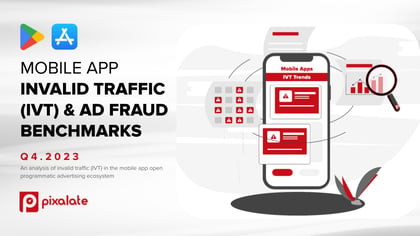
The Q4 2023 Global Mobile App Invalid Traffic Benchmark Repor, analyzes the invalid traffic (IVT, including ad fraud) rates for open programmatic advertising on mobile apps from the Google Play Store and Apple App Store.
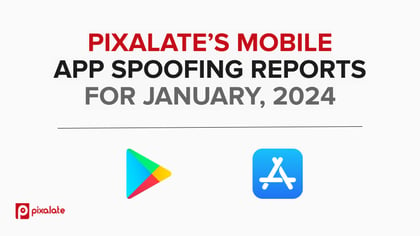
The January 2024 Mobile App Spoofing Report for the Google Play Store and Apple App Store, covers Mobile App Spoofing numbers in January 2024 on apps found in the stores. Download the reports below:
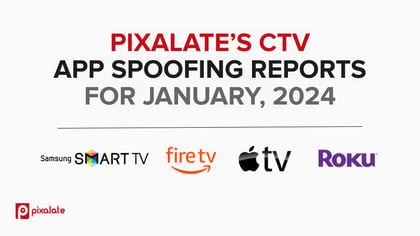
The January 2024 CTV App Spoofing Report for Samsung Smart TV, Amazon Fire TV, Apple TV, and Roku covers CTV App Spoofing numbers in January 2024 on apps found in the stores. Download the reports below:
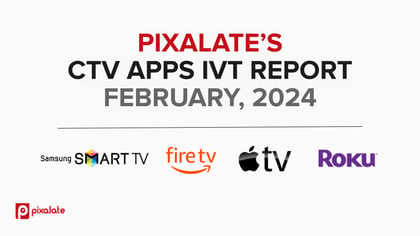
The February 2024 CTV Apps IVT Report for Roku, Amazon Fire TV, Apple TV, and Samsung Smart TV reveals which CTV apps appear to be most impacted by invalid traffic (IVT), including ad fraud. Download the reports below:
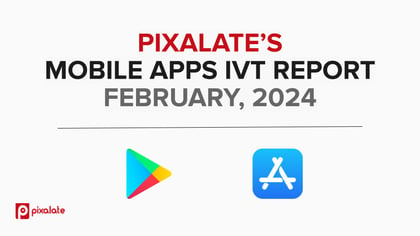
The February 2024 Mobile Apps IVT Report for the Google Play Store and Apple App Store reveals which Mobile apps appear to be most impacted by invalid traffic (IVT), including ad fraud. Download the reports below:

Pixalate's Trust & Safety Advisory Board regularly publish manual reviews where they assess an app’s child-directedness:
You can search Pixalate's full catalogue of reviews in our CTV and Mobile App Review Page

There were several important events in the industry recently, including a pair of bills to amend children's privacy provisions in the state's Consumer Data Protection Act, and a preliminary ruling on IAB Europe's Transparency and Consent Framework. They were covered by the International Association of Privacy Professionals (IAPP) in the following articles:
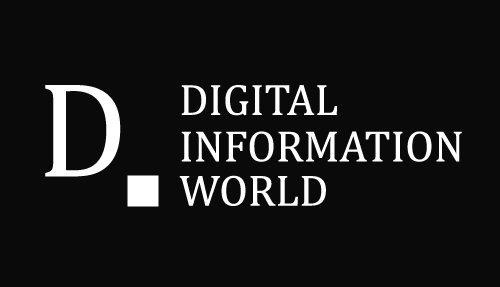
The FTC has made a significant ruling regarding the sensitivity of users' web browsing data, highlighting the misuse of personal information by numerous companies without proper consent. This decision marks a turning point in privacy concerns, with a surge in complaints globally, and emphasizes the need for stricter regulations to protect sensitive browsing and location information from exploitation.
Digital Information World cover the news in this press release
*By entering your email address and clicking Subscribe, you are agreeing to our Terms of Use and Privacy Policy.
These Stories on Weekly Recaps
*By entering your email address and clicking Subscribe, you are agreeing to our Terms of Use and Privacy Policy.

Disclaimer: The content of this page reflects Pixalate’s opinions with respect to the factors that Pixalate believes can be useful to the digital media industry. Any proprietary data shared is grounded in Pixalate’s proprietary technology and analytics, which Pixalate is continuously evaluating and updating. Any references to outside sources should not be construed as endorsements. Pixalate’s opinions are just that - opinion, not facts or guarantees.
Per the MRC, “'Fraud' is not intended to represent fraud as defined in various laws, statutes and ordinances or as conventionally used in U.S. Court or other legal proceedings, but rather a custom definition strictly for advertising measurement purposes. Also per the MRC, “‘Invalid Traffic’ is defined generally as traffic that does not meet certain ad serving quality or completeness criteria, or otherwise does not represent legitimate ad traffic that should be included in measurement counts. Among the reasons why ad traffic may be deemed invalid is it is a result of non-human traffic (spiders, bots, etc.), or activity designed to produce fraudulent traffic.”

